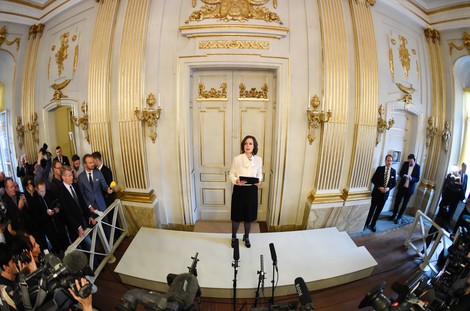Your podcast discovery platform
Curious minds select the most fascinating podcasts from around the world. Discover hand-piqd audio recommendations on your favorite topics.

piqer for: Global finds Globalization and politics Technology and society
Turkish journalist, blogger and media expert. Writes regular columns for The Arab Weekly and contributes to Süddeutsche Zeitung, El Pais and the Guardian. An European Press Prize Laureate for 'excellence in journalism' in 2014, Baydar was awarded the prestigious 'Journalistenpreis' in Germany by Südosteuropa Foundation in February 2018.
Has Sweden's Image Been Tarnished By The Nobel Academy Scandal?
The blow has come suddenly, from the most unexpected angle: The sexual assault scandal that has hit the Swedish Academy, one of the most sacred literary institutions in the world, led to such an internal earthquake that the Academy's structures were shattered. This earthquake echoed deep into the chambers of the Royal Palace (which is its patron), and caused the cancellation of the Nobel Prize of Literature this year.
The scandal has also traumatized the elite of the northern nation, proud of the seemingly unshaken tradition of consensus and an image worldwide as the peace-building role model.
At the center of the debate raging these days in Sweden is just about the very image, as it was called Sverigebilden. There are more than a few who believe that the scandal reaches dimensions beyond what it is about, and threatens what the Swedes fear more than anything else: Its image as an egalitarian, progressive country may have been stained. At the top of those concerned are the ruling politicians of the center-left, who apparently predict a backlash in the run-up to the elections. But, as consensus requires, even the opposition circles join the choir for a 'national fix' to sort things out for the nation's best abroad.
The government has put the blame on the Academy for tarnishing its own, and by extension the country’s, reputation, rather than on the Swedish media reporting on the scandal. Swedish news outlets, for their part, have even been translating their reporting to English in hopes of getting cited in the international press. Swedes are also discussing the question of how the scandal affects the country’s image, but that hasn’t been treated as a reason not to report on the affair.
Some intellectuals coin the term 'domestic foreign policy'.
What does it mean? Nathalie Rotschild explains here.
